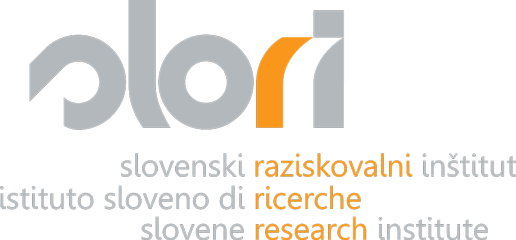Zaira Vidau
Annales, SLORI, Univerza na Primorskem, Znanstveno raziskovalno središče, Koper, 2015
The book was published by the University publishing house Annales with SLORI, the University of Primorska and its Science and Research Centre. In her book the author analyses the relations between the concepts of state and nation in Italy as the basis for an understanding of the approach of the Italian state and its regions, provinces and municipalities towards its national and linguistic minorities. The Italian public administration developed from the unification onwards in the 19th century on the basis of the centralised state model which aimed at cultural and linguistic homogeneity. The support of linguistic and ethnic pluralism was perceived as a threat to the stability of the state. The Italian system of public administration itself does not support linguistic diversity. However, important changes were observed upon the transition to the 21st century on the level of the public use of minority and regional languages.
At the beginning of the 21st century, Italy introduced a legal frame concerning minority protection which allows the management of linguistic diversity in public administrations such as regions, provinces and municipalities. It was implemented with the approval of Law 482/1999 concerning the protection of historical linguistic minorities, the protection law for the Slovene national community 38/2001 and some reforms which allowed the decentralisation of functions and competencies from the central state to the local administrations also in the field of safeguarding national and linguistic minorities. Regions, provinces and municipalities thus have an important role in the conservation and development of minorities in the contemporary Italian state as they contribute to the shape and realization of state policies. Minority and regional languages were, upon the transition to the 21st century, included in the official workings of local public administrations in those municipalities which identify as multilingual. This represented an important step concerning the introduction of the management of linguistic diversity in the local public administrations. However, nowhere in the state legislation were the official, regional or minority languages defined, either by the state or local public administrations in the multilingual areas. The system which was introduced has some weaknesses in practice and it is not entirely effective in the promotion of the public use of minority and regional languages.
The politics of the management of linguistic diversity by public local administrations are fundamental for national and linguistic minorities because they influence conservation and development. In this monograph the author treats them within the frame of contemporary theoretical models of diversity management. They are also discussed in relation to the phenomenon of ethnic revival on the European level as a consequence of globalization, European integration processes, the dynamics of post-modern society and changes in the role and organisation of the post-traditional national state. On the philosophical-ideological level, diversity management relates to the debate on multiculturalism and on the theoretical approaches concerning the cultural and administrative-political autonomy of national minorities in the models of state decentralisation.
The book includes the case study of the Friuli Venezia Giulia autonomous region as it is a special case in Italy because it has dealt with national and linguistic pluralism since its establishment in the 1960s related to the presence of the Slovenian, Friulian and German minorities. The case study shows first of all the organisation of its regional, provincial and municipal structure. This is the institutional framework which applies the safeguard of the Slovene, German and Friulian minorities. The case study also provides an overview of the historical development, organisational structure and activity of these minorities. Particularly, the case study presents the contents of the recent regional laws, the regional protection law for the Slovene community 26/2007, the regional protection law for Friulian community 29/2007 and the regional protection law for the German speaking minorities 20/2009. The analysis on the implementation of this legal basis regards the public use of the Slovene, Friulian and German languages in the region, provinces and municipalities. It considers the point of view of the employees in the selected local administrations who use the three languages in oral and written form while conducting the activities of the public administration. This was discussed by employees in a series of interviews which showed the realised activities, weaknesses and best practices in the field of the management of the national and linguistic minorities in the Friuli Venezia Giulia region.
